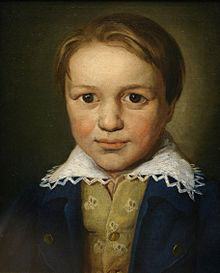Ludwig van Beethoven:
Catholic Music Director
by Gary D. Penkala
An article by Rollin Smith in the May 2019 issue of The American Organist led me to consider something I'd never thought of before.
Ludwig van Beethoven, who was born in 1770 to a Catholic family in Bonn, Germany, was baptized at Saint Remigius Church in that city, and grew up affiliated with the Church.
Some of his first music lessons were on the organ and he actually worked as a music director in a Catholic parish!
 Starting when he was eight years old until his move to Vienna in 1792, Beethoven studied organ and eventually worked as what we might today call a Director of Sacred Music.
Although he studied music with his father, Johann van Beethoven, his first official organ teacher was Gilles van den Eeden, who was organist at the chapel of Archbishop Friederich von Königsegg-Rothenfels.
Starting when he was eight years old until his move to Vienna in 1792, Beethoven studied organ and eventually worked as what we might today call a Director of Sacred Music.
Although he studied music with his father, Johann van Beethoven, his first official organ teacher was Gilles van den Eeden, who was organist at the chapel of Archbishop Friederich von Königsegg-Rothenfels.
Beethoven's biographer, Alexander Wheelock Thayer notes that
a strong predilection for the organ was awakened in the lad and he eagerly sought opportunities to study the instrument.
Until the age of 21, Beethoven had three other organ teachers, apart from Gilles van den Eeden:
- Herr Zenser
- Friar Willibald Koch
- Christian Gottlob Neefe
Herr Zenser was organist at the Münsterkirche in Bonn, an ancient Romanesque basilica dedicated to Saints Cassius and Florentius.
Along with Beethoven, he taught Heinrich Theisen, organist at Rheinbreitbach, a student twice young Ludwig's age.
Thayer notes:
… the lad of ten years [Beethoven] surpassed his fellow student of twenty.
At that time Ludwig composed pieces which were too difficult for his little hands.
"Why, you can't play that, Ludwig," his teacher is said to have remarked, and the boy to have replied: "I will when I am bigger."
Franciscan brother Willibald Koch was noted both as a fine organist and for his knowledge of organ building.
The young Beethoven sought lessons with the Franciscan and made such progress that Friar Willibald made him his assistant at the Church of Saint Ludwig.
This was the monastery church of the Friars Minor, dedicated to Saint Louis of Toulouse, often called the "Minorite Church."
The organ here was at the time the largest instrument in Bonn, boasting 33 stops over two manuals and pedal.
Ludwig agreed to play organ for the 6:00 am Mass in this church of his namesake, where is 1767 his own parents had been married.
His first organ teacher, van den Eeden, sent the young boy of eleven to the court chapel
to accompany the Mass and other church music on the organ.
His playing was so astonishing that one was forced to believe he had intentionally concealed his gifts.
While preluding for the Credo he took a theme from the movement and developed it to the amusement of the court orchestra, so that he was permitted to improvise longer than is customary.
That was the beginning of his brilliant career.
Gilles van den Eeden retired in 1781, succeeded by Christian Gottlob Neefe, with whom Beethoven continued his organ studies.
A year later Neefe's career took him to Münster, and he left his young pupil, not yet twelve years old, as his assistant at the chapel organ.
In 1873 Neefe wrote of Beethoven:
… that his young pupil was a promising talent who played the clavier very skillfully and powerfully, read st sight well, and played Bach's Well-Tempered Clavier.
"If he goes on as he has begun, he will certainly become a second Mozart."
In 1784 Beethoven was appointed assistant court organist, an unpaid position that, two months later, due to a transition to a new Elector, became salaried at 150 florins.
Although the organ was modest, Beethoven undertook a number of liturgical tasks:
- Sundays and holydays: Solemn High Mass at 11:00 am
- Sundays and holydays: Solemn Vespers at 3:00 pm [the Magnificat being a full choral piece
- Wednesdays in Lent: Miserere sung at 5:00 pm
- Fridays in Lent: a sung Stabat Mater
- Saturdays: the Litany of Loreto [Litany of the BVM] sung at the altar
- Daily: spoken Masses at 9:00 am and 11:00 am (the latter at 10:00 on Sundays)
Even while employed as chapel "Music Director," Beethoven likely still played organ at Saint Ludwig Church, since the 6:00 am Mass did not conflict with the court chapel schedule.
This organ, the most closely associated with Beethoven, was the largest he played, referenced in his comments to Karl Gottfried Freudenberg in 1825: " I, too, played the organ a great deal in my youth, but my nerves could not stand the power of the gigantic instrument."
His organ career seems to have ended upon his departure for Vienna in 1792.
Only three organ works exist by Beethoven's hand: a rather simple two-voice Fugue in D Major (WoO 31) and two Preludes through the Major Keys (Op.39, Nos.1 and 2), each of which modulates through a circle of fifths.
All of these were composed during his studies with Neefe.
Article written 27 May 2019
| 

